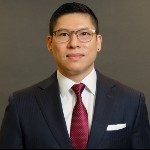- Anatomy of a Deal: Non-Bank ABL Solutions - Maximizing Availability and Flexibility
- Trade Credit Insurance – More than Insurance
- Should Banks Combine Their ABL and Factoring Groups?
- Next Frontier in Lending: High Net-Worth Lending
- SFNet Presents Results of Groundbreaking Diversity, Equity and Inclusiveness Survey on June 28
Interview with Jude Baldo, Member of SFNet’s Diversity, Equity & Inclusiveness Committee

Jude Baldo is an associate in the Global Finance group of Sidley Austin LLP, a global law corporate law firm. He is responsible for counseling clients in complex financings across a broad spectrum of platforms, industries, and asset types, including lending and securitization transactions, both domestically and internationally. Prior to embarking on his legal career, Jude was an associate vice president for a software as a service company, where his experiences with cross-border technology regulations led him to law school. Jude graduated a Regents Scholar from the University of California, Los Angeles and from Northwestern Pritzker School of Law with a JD.
Jude resides in Illinois with his wife, their newborn, and their French bulldog, Celine.
Please provide a bit of background about how you got into the industry and your current role.
I originally planned on starting my legal career as an early company/venture capital lawyer, because of my prior experience in technology. However, the profound influence of Bruce Markell, one of my first-year professors and finance-attorney mentors like Matthew Boyden-Wilson, led me to practice commercial lending upon graduating from Northwestern. My career trajectory, if anything, is a lesson on flexibility when it comes to choosing various paths.
At Sidley, I currently serve as one of approximately 200 lawyers and staff in the Global Finance group. Global Finance serves clients around the world in a variety of lending and financing transactions. The benefit of such a large team is that a lawyer in Global Finance has likely seen the transaction I am working on, regardless of how novel it may seem to me. Sidley is also an incredibly supportive organization when it comes to diversity, inclusion, and equity, which allows my professional life to dovetail with my personal causes.
Why did you join the SFNet Diversity, Equity & Inclusion Committee?
I joined the Diversity, Equity & Inclusion Committee (DEI) because I have an obligation to open doors for young professionals who otherwise would not have the same opportunities that I have. As a child, I was raised by a single mother and we regularly lived just above the poverty line. I even worked as a janitor, emptying the trash cans in offices not so different than the one I work in today. Without the help and kindness of so many, including the technology entrepreneur Robert Jadon, I would not be where I am today. Often the problem with growing up poor is not about “pulling yourself up by the bootstraps,” it’s that you might not have boots in the first place. Without mentors like Robert, I would not have context for the professional services industry, let alone what it means to practice as a corporate attorney. Ultimately, organizations like DEI permit me to help expand opportunities to people that grew up like me, those lacking boots.
What do you think the industry can do to increase diversity, equity and inclusiveness?
The industry has a pipeline problem. This means that we are only utilizing a small pool of all potential talent. From a purely economic perspective, this suboptimal condition is bad for business. Thus, it is incumbent upon industry leaders, including junior leaders like myself, to expand the pipeline in formal settings like DEI and in personal ones like how we choose to give our time. My passion for diversity, equity, and inclusiveness is one I carry with me when I speak to undergraduates at UCLA. Small investments in undergraduates, like the one I just mentioned, will pay dividends far into the future.
